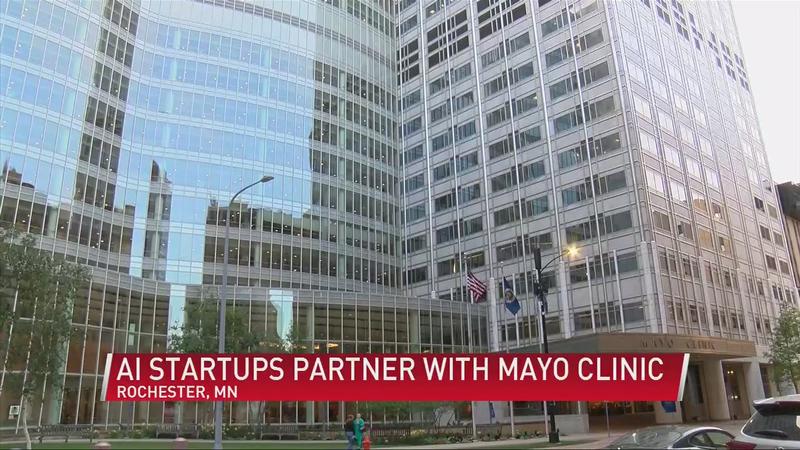Artificial Intelligence startups from around the world partner with Mayo Clinic
[anvplayer video=’5124693′ station=’998128′]
(ABC 6 News) – Mayo Clinic Platform Accelerate, an immersive program for health tech startups, launched its initial cohort of participating companies in March. The program is 20 weeks and helps Artificial Intelligence (AI) startups get market-ready.
One of the startups, Seer Medical, is aiming to help patients with epilepsy worldwide.
“The current status quo with epilepsy is it takes over five years to reach control. We want to shorten that path down to just a couple of weeks,” Seer CEO Dr. Dean Freestone said.
Seer Medical has been operating for about five years in Australia and has grown really quickly. The company hopes to replicate its success here in the United States.
“The idea here is that we want to make sure that the impact that these companies are making is not just limited to the U.S., but to the global market. So basically, patients everywhere get to benefit from the technologies and the products that these companies are developing,” Sana Khalid, Director of Partner Programs with Mayo Clinic Platform, said.

With the help of AI, Seer has developed three revolutionary products. The first is a digital neurologist which helps patients triage through the healthcare system so they can get the right tests done and see the right specialists.
The second product is Seer Home which takes hospital testing into the comfort of the patient’s home.
“So this device is something that would take what would normally be very complex equipment that can only be used in a hospital and reduce it down to something that can be worn on a patient,” Dr. Freestone said.
Seer captures a lot of data, but with the help of AI methods to read that data, it helps reduce the time scientists would have to go through all of the data to find events like seizures.
“This is only about two seconds of data but this is two seconds within a week of recording. It’s like a needle in a haystack. And that’s why we need the AI systems to be able to read the data,” Dr. Freestone explained.
One patient was diagnosed with epilepsy but they actually ended up having a cardiac problem. Freestone said the patient never would’ve discovered this without this type of at-home test and Artificial Intelligence.
“That’s one of the great promises of AI and machine learning that we can develop algorithms to go through the data and pull out useful information, Dr. Benjamin Brinkmann, an epilepsy scientist at Mayo Clinic, said.
The third product is Seer Health. The main feature is a seizure risk forecast. It’s like a weather forecast for epilepsy with an app on the patient’s phone and a Fitbit watch.
“And what we see here on the screen is a calendar view of someone’s risk of having a seizure over the time course over a month. So, what this means for th person is they can look ahead in time and plan their day-to-day activities,” Dr. Freestone said. “They can live their life with greater confidence and less anxiety.”
This product was just launched in June and there are already thousands of people using the app to guide their daily activities like planning to go into the office for work or to work from home, or to go out with friends.